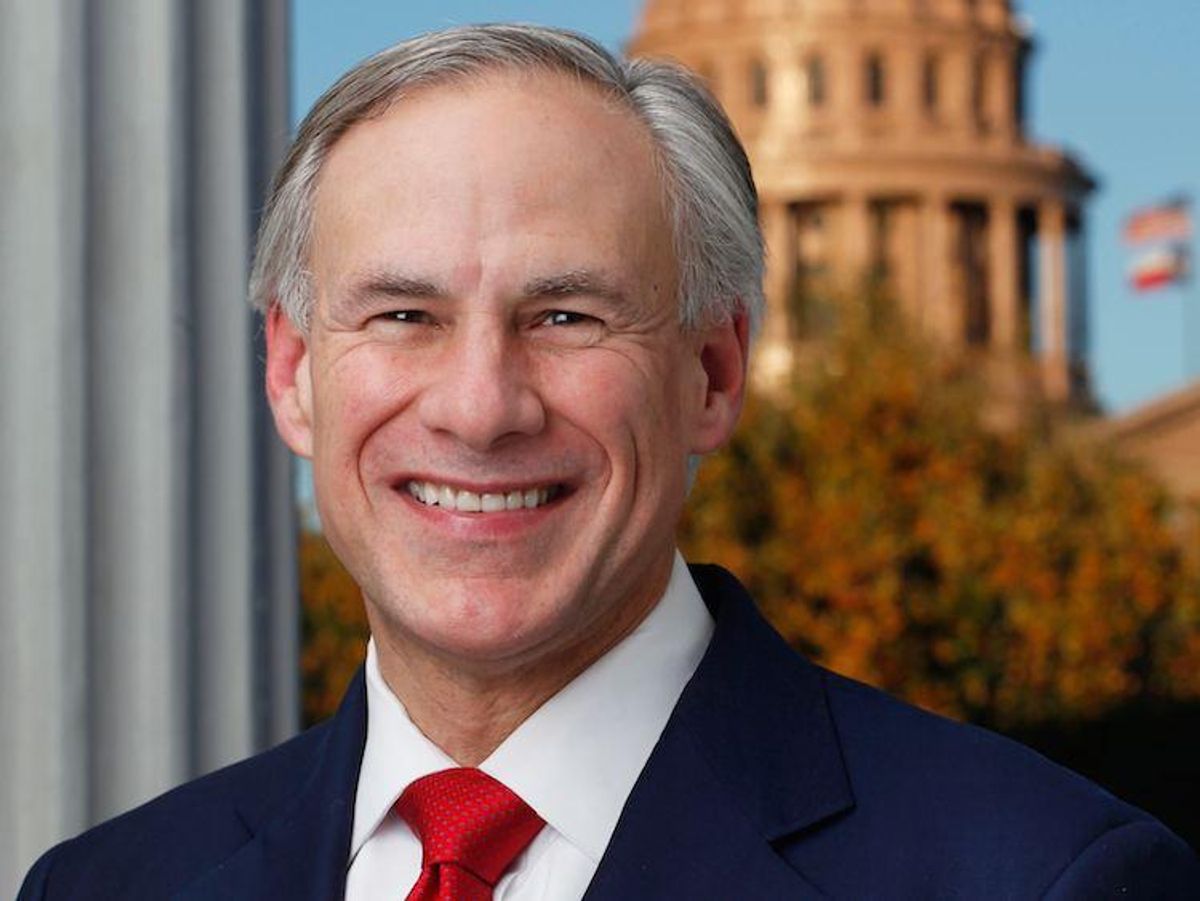Texas Gov. Greg Abbott, who last year denounced the Supreme Court's marriage equality ruling, has a new idea for getting around that and other matters of federal law he disagrees with.
Abbott Friday called for a constitutional convention of the states to consider nine new amendments to the U.S. Constitution, including one that would let a two-thirds majority of states override a U.S. Supreme Court ruling, another that would allow such a majority to override any federal law, and another that would require a seven-justice majority on the high court to strike down a democratically enacted law, The Dallas Morning News reports.
The amendments would also "require a balanced U.S. budget and prohibit Congress from regulating any activity 'that occurs wholly within one state,' a category some conservatives say includes gun use and marriage," reports The Texas Tribune.
Abbott made his announcement at the Texas Public Policy Foundation's Annual Policy Orientation in Austin. Texas media reports don't quote him mentioning marriage, but he is on record as opposing the marriage equality ruling. "The Supreme Court has abandoned its role as an impartial judicial arbiter and has become an unelected nine-member legislature," he said in a statement issued the day the ruling came down, June 26. "Five Justices on the Supreme Court have imposed on the entire country their personal views on an issue that the Constitution and the Court's previous decisions reserve to the people of the States."
Also, before being elected governor in 2014, Abbott, a Republican, was Texas's attorney general, and in that position he defended the state's ban on same-sex marriage.
In a 92-page plan he released explaining the rationale for the amendments, Abbott railed against what he sees as unchecked federal power. "The Constitution and the rule of law are under unprecedented attack in our Nation's capital," he wrote. "The President touts his unilateral power to change the law when he does not like the results of the democratic process. Congress is full of members who care more about the trappings of power than actually performing their constitutional roles. And the Supreme Court is dominated by individuals who substitute their personal policy preferences for the Constitution and laws of the United States."
"The President thinks he can remake entire sectors of the world's biggest and most dynamic economy and use administrative agencies to displace state law," Abbott continued in the document. "By one estimate, the President has unilaterally amended Obamacare in 32 separate ways, remaking the Nation's healthcare markets in the process. The President has asserted unilateral authority to regulate virtually every building in the entire United States (all the way down to the corner food mart and drycleaner) in an effort to curb 'greenhouse gases.' The President has taken executive actions to infringe the Second Amendment rights of millions of lawful gun owners, even though the entire point of the Bill of Rights was to protect Americans from invasions of their liberties. And but for a lawsuit brought by Texas, the President would have unilaterally ordered the single largest overhaul of the immigration system in our Nation's history."
Abbott, however, does not have a good chance of getting his constitutional convention to come together, nor of getting his amendments enacted, law and policy experts said. The Constitution has been amended 27 times, and all the amendments have come through Congress and have then been ratified by the states, and none by constitutional convention, although that is an option for amending the document.
Such a convention could be chaotic, University of Texas law professor Sanford Levinson, told the Tribune, likening it to an unraveling sweater. "You see a thread loose, and you pull at it, then you discover that the whole arm is falling off because things are connected to one another," he said.
Texas Democrats and the state's American Civil Liberties Union affiliate denounced Abbott's plan, the Morning News reports, while Slate contributor Ben Mathis-Lilley lambasted it in a story headlined "Texas Governor Calls for Huge, Insane Changes to U.S. Constitution."
"Abbott's proposal ... could quite easily give a party that was in the minority nationally the ability to veto duly passed congressional legislation and to overturn Supreme Court decisions like Roe v. Wade or Brown v. Board of Education, destroying the balance of powers and, really, defeating the purpose of having a Congress or a Supreme Court in the first place," Mathis-Lilley wrote. "Let's not do this."


















































































Fans thirsting over Chris Colfer's sexy new muscles for Coachella